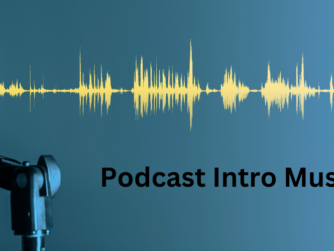As humans need communities to network and interact, podcast networks provide a platform for collaborating podcasts with similar genres. For instance, if the Matrix Green Pill podcast is part of a podcast network, it will be one where other podcasts under the network feature real people’s fascinating journeys.
However, depending on your vision for your podcast, joining a podcast network might be the next move for your podcast. In this article, we capture all you need to know about podcast networks, from their functioning to the pros and cons of joining one. Read on!
What is a podcast network?

A podcast network is a single entity that features a group of similar podcasts to produce, distribute and make available to a larger audience or advertisers. You can think of a podcast network as a hub for individual podcasts to benefit from specific opportunities.
Functioning of podcast networks

There are various kinds of podcast networks, ranging from popular ones like NPR to podcast networks for small podcasts like PodcastOne and Gimlet Media. Many of these podcast networks work to improve the visibility of podcasts under their umbrella.
Podcast networks exist to create a win-win situation for themselves and podcasters. By helping to improve podcasts’ production and marketing, they attract more advertisers and get a commission from every ad revenue.
Although podcast networks are open to anyone, specific requirements must be met before a podcast show can join one. Some of these requirements border on quality, the show’s relevance, audience reach and consistency.
Pros and Cons of podcast networks

The benefits of joining a podcast network include
- More exposure: Being part of a podcast network can boost visibility for podcasts to locations they might not have reached before. Cross-promotion for podcasts within these networks leads to a wider audience reach. For example, the Matrix Green Pill podcast has an established audience reach in the Middle East. Being in a podcast network with this podcast can lead to more listeners from the region.
- Revenue: Podcast networks benefit their subscribers by providing access to advertising companies that can increase the earning potential of individual shows. They act as intermediaries negotiating the best deals on your behalf.
- Networking: With podcast networks, you can find shows with similar niches for you to collaborate and learn from. It provides a network of like-minded people in which you can find a community and better develop your show through shared ideas.
Some of the cons of being a part of podcast networks include
- Contractual obligations: You are bound to follow the contract terms you signed before joining the network. These terms include length of time, content ownership, and publication commitment. This is why it is essential to carefully read any contract before signing.
- Shared revenue: The podcast network is usually entitled to a portion of the ad revenue generated from your show. Podcast networks are businesses, are their aim remains to generate profits. As your show grows, the commission taken by the network also increases.
- Loss of total creative control: This disadvantage is perhaps one of the paramount downsides to podcast networks. Once you become a part of a network, you might be limited from speaking about specific topics or personalities. In addition, you have little control over the kind of ads that feature on your show.
Bottom line
Although podcast networks present many opportunities for creators, it is still essential to consider how beneficial they might be before joining one.









